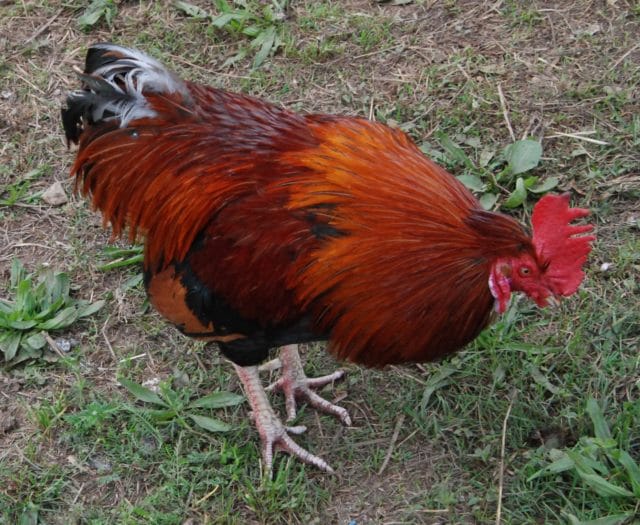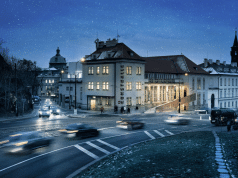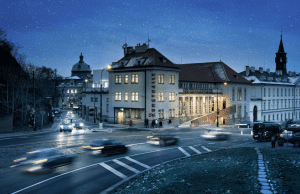On a quiet summer day, when the farmers were building haystacks in Slovenian country side, one of the most prominent roosters of all times was born. Truly, this rooster was not the usual rooster that the Merriam-Webster Dictionary describes as: »An adult male domestic chicken« or as »an adult male of various birds rather other than the domestic chicken«, and neither it was the, as the online dictionary suggests in the third version of the description, »A cocky or vain man.«
Indeed, that rooster, born on a summer day, or to be precise, on the 25th of July 1550, was able to compose music. So, he wasn’t an ordinary rooster. And, as the history says, he was not vain either, but was rather humbly and utterly devoted to his composing of a late-Renaissance polyphonies. But he was, though, a Rooster. In fact, his name was Jacobus Gallus Carniolus or in Slovene language of today Jakob Petelin Kranjski. During the time of his life, he was a very successful and a respected composer in the area of nowadays Europe.

Gallus is a Latin name for rooster, the Slovene name for rooster is Petelin. So, Jacobus Gallus Carniolus, more known shortly as Jacobus Gallus, was born in Slovenian countryside. There is some mystery involved in his birthplace for three Slovenian towns have been insisting that their town is the cradle of this famous composer. It really is quite difficult to follow his path and to dig out all the details about his life, for, after all, he was born in the 16th Century and, as we know, the digital era, was still centuries away. And on top of that, the region of nowadays Slovenia, at the time belonging to Habsburg lands in the Holy Roman Empire, had only recently got the first written book in its language. Meaning, in the same year as Gallus was born (in 1550) the first book written in the Slovene language was published by Primož Trubar.
Well, to get back to Gallus. It is not known exactly in which of the three towns he was born. However, what is known is that he often added the adjective Carniolus to his homeland Carniola of nowadays Slovenia. And it is also known that over 500 works have been attributed to him. His most notable work is the six-part Opus Musicum (1587) a collection of 374 motets. Some of the historic researches found out that he literally died for music. At the age of 41, he died from complete exhaustion, for he was composing all-night-long and he invested all of his money into the print of his composed masterpieces.

So, as mentioned at the beginning, he was no rooster in none of the meanings. First of all, he was a man and not an animal, and second, he was not a vain man. He lived for music. And to commemorate his dedication, work and contribution to Slovene and European music of the 16th Century, the Cankarjev dom – Cultural and Congress Centre Ljubljana named its central hall Gallus Hall (Gallusova dvorana). There, not just on quiet summer days, but on all the given days in the year, a visitor can enjoy in diverse events spanning from international art performances to international conferences surrounded by a historic musical spirit of a rooster who never was.















